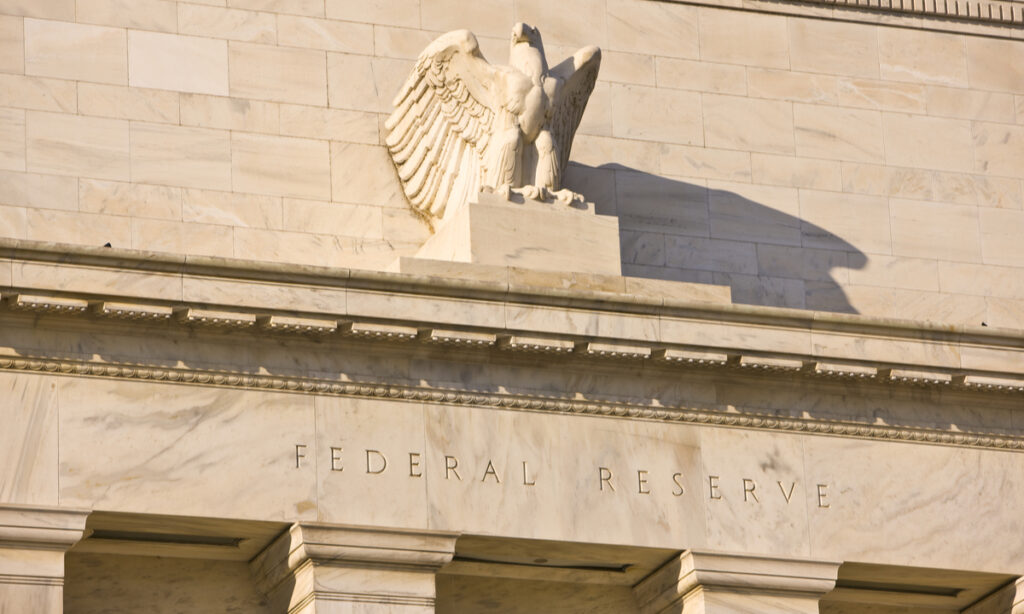Federal Regulatory Measures Against Customers Bank Highlight the Persistent Banking Obstacles Faced by Crypto Industry

Despite the decentralized nature of cryptocurrencies and other digital assets, Web3 businesses need banking partners.
But on Thursday (Aug. 8), news broke that Pennsylvania-based Customers Bank, one of the only crypto-friendly banks in the U.S., was served with a 13-page regulatory enforcement action by the Federal Reserve related to its digital asset and dollar token activities, highlighting the need for financial institutions (FIs) to balance both innovation and compliance.
The landscape of crypto-friendly banks, particularly within the U.S., shrank dramatically last spring with the closure of lenders Silvergate Bank and Signature Bank. In the wake of those bank failures, Customers Bank became a go-to partner for crypto businesses, reportedly partnering with hundreds of crypto firms, including major exchanges and stablecoin issuers.
Customer Bank’s digital asset business represents 15% of its deposit base, and despite the enforcement action, executives have stressed that they remain committed to serving digital asset firms.
But now, in order to do so, Customers Bank must give the Fed 30 days of written notice before engaging in new strategic initiatives, offering new products or services, or developing new relationships related to the crypto industry.
The bank must also improve risk management practices as it relates to the bank’s digital asset strategy, including by enhancing written policies, procedures, and risk management standards, as well as ensure individuals carrying out risk management responsibilities related to the bank’s digital asset strategy have adequate subject matter expertise, stature, independence, and authority to carry out their roles.
The Fed’s enforcement focused on “significant deficiencies” related to Customers Bank’s compliance with Bank Secrecy Act/anti-money laundering (BSA/AML) and Office of Foreign Assets Control (OFAC) requirements within its digital asset vertical.
Read more: Crypto’s Three Priorities for 2024: Interoperability, Acceptance, Regulation
Regulatory Compliance is Crypto Sector’s Elephant in the Room
As crypto firms strive to gain legitimacy and operational efficiency, the enforcement action serves as a reminder to both crypto businesses and their potential banking partners that there exist significant hurdles in establishing and maintaining banking partnerships.
While cryptocurrencies are designed to operate outside the traditional banking system, the reality is that crypto businesses still rely heavily on banking partners for a variety of essential services. These partnerships help bridge the gap between the decentralized nature of cryptocurrencies and the structured world of traditional finance, enabling crypto businesses to operate more effectively, securely, and in compliance with global regulations.
The Fed’s recent enforcement action ruffled some feathers within the Web3 space.
Crypto investor and executive Tyler Winklevoss, founder of the Gemini cryptocurrency exchange, took to X (formerly Twitter) on Thursday to air out his thoughts on the Fed’s 13-page letter.
“Given that Customers Bank is one of the only few crypto-friendly banks remaining in America today, this means that the Fed is now a direct gatekeeper standing between crypto companies and their ability to get a new bank account,” Winklevoss wrote in a post on X.
Today, the Fed confirmed that Operation Choke Point 2.0 remains in full swing, provided valuable insight into how it works, and verified that the Harris crypto “reset” is a scam. The Fed revealed all of this in a 13-page enforcement action it issued this morning against… pic.twitter.com/zhLRRWAH0E
— Tyler Winklevoss (@tyler) August 9, 2024
Read more: Blockchain’s Benefits for Regulated Industries
One of the most significant barriers to securing banking partnerships is the regulatory environment. Cryptocurrencies operate in a space that is still largely undefined by regulators in many parts of the world. This lack of clarity creates a cautious approach among banks, which are wary of engaging with businesses that could potentially run afoul of anti-money laundering and know-your-customer (KYC) regulations.
Such regulations are often flouted by crypto companies. Last summer, embattled crypto exchange Binance used two U.S. banks to move billions of dollars around the globe, according to the Securities and Exchange Commission (SEC), transferring almost $70 billion via accounts at Silvergate Bank and Signature Bank.
“It is one of the more sizable cases of financial misconduct I’ve ever seen — the documentation is overwhelming,” Louise Shelley, a George Mason University professor specializing in money laundering was quoted saying in a report.
Shelley added that she was “amazed” that the banks had shifted billions of dollars overseas for Binance for such a lengthy period.
Earlier this summer (July 25), the U.S.-based cryptocurrency exchange Coinbase was fined $4.5 million by a U.K. regulator for serving “high-risk” customers. In April, U.S. Treasury Deputy Secretary Wally Adeyemo testified that cryptocurrency is increasingly becoming a safe haven for “malign actors” such as terror groups.
Beyond regulatory and reputational concerns, there are operational and technical challenges. Integrating crypto firms into traditional banking systems requires significant effort and investment. Many banks lack the infrastructure or expertise to handle digital assets, and the costs associated with upgrading systems or training staff can be prohibitive. Furthermore, the fast-paced nature of the crypto industry often clashes with the more methodical and cautious approach of traditional banks, leading to misalignments in expectations and timelines.
But PYMNTS Intelligence found that using cryptocurrencies for cross-border payments could be the winning use case that the sector has been looking for. The research found that blockchain-based cross-border solutions, particularly stablecoins, are being increasingly embraced by firms looking to find a better way to transact and expand internationally.
Separate PYMNTS Intelligence also found that blockchain has numerous potential benefits to serve the unique needs of regulated industries, including finance, healthcare, identity verification, and supply chain management.
At the same time, other data from PYMNTS Intelligence reveals that for smaller FIs and credit unions, embracing innovation is often the best way forward.
See More In: AML, Anti-Money Laundering, bank regulations, BANKING REGULATIONS, Banks, Blockchain, crypto, Crypto Regulations, cryptocurrency, Customers Bank, decentralized finance, DeFi, digital assets, Fed, federal reserve, financial institutions, News, PYMNTS News, Web3
Source link
#Fed #Action #Customers #Bank #Underscores #Cryptos #Ongoing #Banking #Challenges




